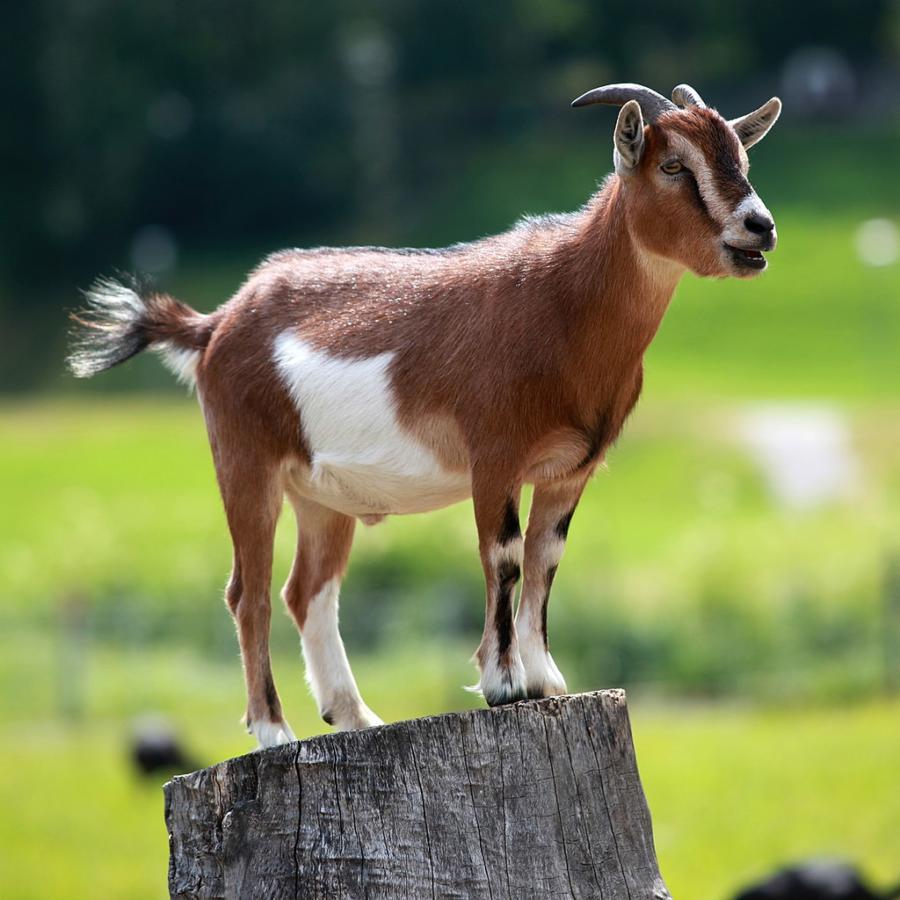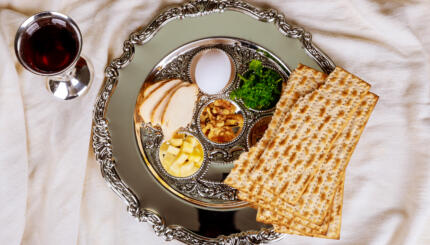Had Gadya (“One Kid”) is the last of the songs sung at the conclusion of the seder and tells the story of the little goat bought by father for the mere pittance of two zuzim. The following shows artist Shoshannah Brombacher’s depiction of the song.
 |
| One kid that father bought for two zuzim. |
 |
| Then came a cat and ate the kid that father bought for two zuzim. |
 |
| Then came a dog and bit the cat that ate the kid that father bought for two zuzim. |
 |
| Then came a stick and beat the dog that bit the cat that ate the kid that father bought for two zuzim. |
 |
| Then came a fire and burned the stick that beat the dog that bit the cat that ate the kid that father bought for two zuzim. |
 |
| Then came water and doused the fire that burned the stick that beat the dog that bit the cat that ate the kid that father bought for two zuzim. |
 |
| Then came an ox and drank the water that doused the fire that burned the stick that beat the dog that bit the cat that ate the kid that father bought for two zuzim. |
 |
| Then came a slaughterer and slaughtered the ox that drank the water that doused the fire that burned the stick that beat the dog that bit the cat that ate the kid that father bought for two zuzim. |
 |
| Then came the Angel of Death and killed the slaughterer who slaughtered the ox that drank the water that doused the fire that burned the stick that beat the dog that bit the cat that ate the kid that father bought for two zuzim. |
 |
| The came the Holy One, Blessed is He, and slew the Angel of Death who killed the slaughterer who slaughtered the ox that drank the water that doused the fire that burned the stick that beat the dog that bit the cat that ate the kid that father bought for two zuzim. |
With your help, My Jewish Learning can provide endless opportunities for learning, connection and discovery.
seder
Pronounced: SAY-der, Origin: Hebrew, literally "order"; usually used to describe the ceremonial meal and telling of the Passover story on the first two nights of Passover. (In Israel, Jews have a seder only on the first night of Passover.)



